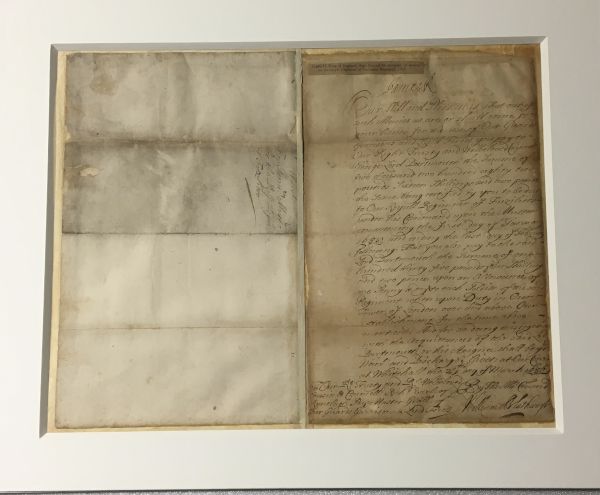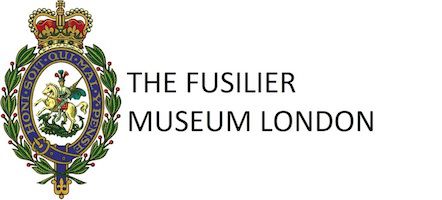
The first manuscript was produced in June 1686, one year after the formation of the Regiment. The document is a Royal Warrant, signed by James II (1633-1701) and dated 27th March 1686. It details the amount of money to be paid to George Legge, Lord Dartmouth for mustering the Regiment, commencing 1st January 1685 to 28th February 1686. It also includes additional payment to Lord Dartmouth for the daily allowance of the soldiers on duty at the Tower of London within that time.
Other important figures added their name to the document. Sir William Blathwayt (1649-1717) was the Secretary at War and helped to establish the War Office. He played a crucial role in the administration of the colonies of North America and was responsible fo the establishment of the charter of the crown colony of Massachusetts Bay, predecessor of the state of Massachusetts.
 The writing on the inside and reverse of this document was only discovered when one of Plowden & Smith's Senior Paper Conservators removed the work from its frame to allow the document to be mounted.
The writing on the inside and reverse of this document was only discovered when one of Plowden & Smith's Senior Paper Conservators removed the work from its frame to allow the document to be mounted.Following treatment, which included some pigment-work, the new display method shows both sides of the document. In this instance, an undermount with a window cut into it so that the manuscript on the reverse is not lost. This conservation work on the document uncovered two further names on the reverse.
The document's recipient is Richard Jones, 1st Earl of Ranelagh (1641-1712), who was at this time paymaster of the Armed Forces. In 1703 he would be expelled from the House of Commons when it was found that he had appropriated more than £900,000 of public funds! The endorsement on the reverse of the document is a receipt for the full amount signed by Thomas Richers (who remains a mystery!).

The second manuscript is another Royal Warrant, signed by William III (1650-1702), James II nephew and son-in-law. He and his wife Mary became joint rulers after her father's apparent abdication in 1689. It is dated 1st August 1692 and signed on behalf of William and Mary, and appoints 'Our Trusty and Wellbeloved' Colonel Edward Fitzpatrick to be Colonel of the Regiment of Fusiliers. Fitzpatrick died at sea whilst on passage from Holyhead to Dublin, in 1697. His body was washed ashore and was buried in St. Patrick's Cathedral, Dublin. The Warrant has again been witnessed and signed by Sir William Blathwayt.
The Document is written on a lower-quality vellum, as stretching of the skin can be seen in the top right corner. Unfortunately conservation work did not uncover any hidden writing this time!
For transcriptions of the manuscripts please click below:
James II
William III
